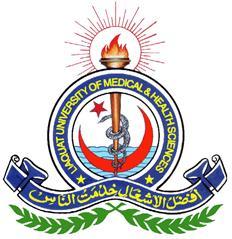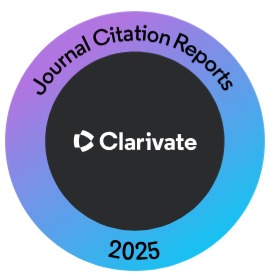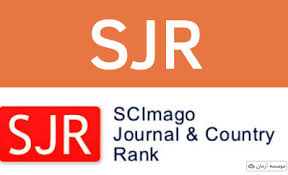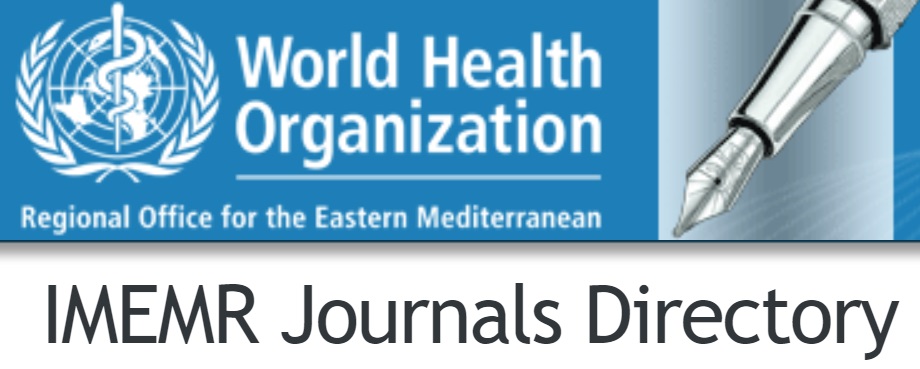Development of the "Pegasting" Module and the Effectiveness of Module Utilization for Intensive Assistance for Mothers in Preventing Stunting
Keywords:
Pegasting Module, Effectiveness of utilization, Intensive Assistance, Mother, StuntingAbstract
OBJECTIVE: To develop the "Pegasting" Module and evaluate the effectiveness of module utilization in intensive assistance for Mothers in Preventing Stunting.
METHODOLOGY: The Design involved research and development, utilizing a quasi-experiment (one-group pre-post test design). The location was 10 villages in the North Konawe Health Service Work Area. The total sample consisted of 90 participants. Determining the number of samples using the Slovin formula. The data were analyzed using a questionnaire based on the data collected from the research instrument. The pre-test and post-test results were compared using the Wilcoxon signed-rank test. The analysis was conducted using the SPSS Statistics 22 application. The inclusion criteria were mothers with toddlers who were mentally healthy, had visited a health centre, and were not illiterate.
RESULTS: The module validation stage was conducted by media experts, achieving a score of 68.48% in the feasible category and 97.33% from material experts in the very worthy category. The study indicates that providing training significantly enhances the knowledge and behaviour of pegasting cadres, with p-values of 0.001 and 0.012, respectively. The experimental group showed a significant difference in knowledge before and after the intervention compared to the control group, with p-values of 0.002 and 0.001, respectively.
CONCLUSION: The intervention had a significant impact on the behaviour of mothers in both experimental and control groups.
References
Khadija U, Mahmood S, Ainee A, Quddoos MY, Ahmad H, Khadija A et al. Nutritional health status: association of stunted and wasted children and their mothers. BMC Pediatr. 2022; 22(1): 1–13.
Soliman N, Soliman A, Alyafei F, Elsiddig S, Alaaraj N, Hamed N et al. Persistent Global Burden of Stunting Among Children. Eur J Med Health Sci. 2024; 6(2): 15–20.
Suhaerudin S, Sumardi A, juliane C. Linear Regression Analysis To Measure The Correlation Between Poverty Rate And Stunting Rate. Sinkron. 2023; 8(4): 2635–40.
Noviana U, Ekawati H, M. Hasinuddin, Haris M, Mufarika M. Stunting prevention behaviour among children under two years based on integrated behaviour: A model development. Pediomaternal Nurs J. 2024; 10(1): 7–13.
Titaley CR, Ariawan I, Hapsari D, Muasyaroh A, Dibley MJ. Determinants of the Stunting of Children Under Two Years Old in Indonesia: A Multilevel Analysis of the 2013 Indonesia Basic Health Survey. Nutrients. 2019; 11(5): 1106.
Siswati T, Iskandar S, Pramestuti N, Raharjo J, Rialihanto MP, Rubaya AK, et al. Effect of a Short Course on Improving the Cadres' Knowledge in the Context of Reducing Stunting through Home Visits in Yogyakarta, Indonesia. Int J Environ Res Public Health. 2022; 19(16): 9843.
Rahmawati T, Harahap H. The Intervention Service Coverage on Convergence Action to Reduce Stunting in Riau Province Priority Districts, Indonesia. Open Access Maced J Med Sci. 2022; 10(T8): 200–6.
Leroy JL, Frongillo EA. Perspective: What Does Stunting Really Mean? A Critical Review of the Evidence. Advances in Nutrition. 2019; 10(2): 196–204.
Leroy JL, Frongillo EA. Perspective: What Does Stunting Really Mean? A Critical Review of the Evidence. Adv Nutrition. 2019; 10(2): 196–204.
Quamme SH, Iversen PO. Prevalence of child stunting in Sub-Saharan Africa and its risk factors. Clin Nutr Open Sci. 2022; 42: 49–61.
Akseer N, Tasic H, Nnachebe Onah M, Wigle J, Rajakumar R, Sanchez-Hernandez D, et al. Economic costs of childhood stunting to the private sector in low- and middle-income countries. EClinical Med. 2022; 45: 101320.
Morales F, Montserrat-de la Paz S, Leon MJ, Rivero-Pino F. Effects of Malnutrition on the Immune System and Infection and the Role of Nutritional Strategies Regarding Improvements in Children's Health Status: A Literature Review. Nutrients. 2023; 16(1): 1.
Roberts M, Tolar-Peterson T, Reynolds A, Wall C, Reeder N, Rico Mendez G. The Effects of Nutritional Interventions on the Cognitive Development of Preschool-Age Children: A Systematic Review. Nutrients. 2022; 14(3): 532.
Martín-Rodríguez A, Bustamante-Sánchez Á, Martínez-Guardado I, Navarro-Jiménez E, Plata-SanJuan E, Tornero-Aguilera JF et al. Infancy Dietary Patterns, Development, and Health: An Extensive Narrative Review. Children. 2022; 9(7): 1072.
Likhar A, Patil MS. Importance of Maternal Nutrition in the First 1,000 Days of Life and Its Effects on Child Development: A Narrative Review. Cureus. 2022; 14(10): e30083.
Friska D, Kekalih A, Runtu F, Rahmawati A, Ibrahim NAA, Anugrapaksi E et al. Health cadres empowerment program through smartphone application-based educational videos to promote child growth and development. Front Public Health. 2022; 10: 887288. doi: 10.3389/fpubh.2022.887288.
Kaligis YA, Wardaningsih S. Increasing Care for Patients with Mental Disorders Thought Community Empowerment: A Literature Review. Jurnal Aisyah?: Jurnal Ilmu Kesehatan. 2023; 8(2).
Darling-Hammond L, Flook L, Cook-Harvey C, Barron B, Osher D. Implications for educational practice of the science of learning and development. Appl Dev Sci. 2020; 24(2): 97–140.
Icenogle G, Steinberg L, Duell N, Chein J, Chang L, Chaudhary N et al. Adolescents' cognitive capacity reaches adult levels prior to their psychosocial maturity: Evidence for a "maturity gap" in a multinational, cross-sectional sample. Law Hum Behav. 2019; 43(1): 69–85.
Darling-Hammond L, Flook L, Cook-Harvey C, Barron B, Osher D. Implications for educational practice of the science of learning and development. Appl Dev Sci. 2020; 24(2): 97–140.
Soviyati E, Sulaeman ES, Sugihardjo Ir, Wiboworini B. Effect of applying the health promotion model in stunting prevention and behavior control in Indonesia. J Educ Health Promot. 2023; 12: 227.
Darling-Hammond L, Schachner ACW, Wojcikiewicz SK, Flook L. Educating teachers to enact the science of learning and development. Appl Dev Sci. 2024; 28(1): 1–21.
Joubert A, Reid M. Knowledge, skills, and training of community health workers to contribute to interprofessional education: a scoping review. J Interprof Care. 2024; 38(2): 308–18.
Teisberg E, Wallace S, O'Hara S. Defining and Implementing Value-Based Health Care: A Strategic Framework. Academic Medicine. 2020; 95(5): 682–5.
Faye CM, Fonn S, Kimani?Murage E. Family influences on child nutritional outcomes in Nairobi's informal settlements. Child Care Health Dev. 2019; 45(4): 509–17.
Kirchner JE, Dollar KM, Smith JL, Pitcock JA, Curtis ND, Morris KK et al. Development and Preliminary Evaluation of an Implementation Facilitation Training Program. Implement Res Pract. 2022; 3: 263348952210874.
Kamalov F, Santandreu Calonge D, Gurrib I. New Era of Artificial Intelligence in Education: Towards a Sustainable Multifaceted Revolution. Sustainability. 2023; 15(16): 12451.
Novianti Utami R, Letchmi Pandarugan S, Nambiar N. The Relationship Between of Knowledge Parenting and Food Intake on the Incidence of Stunting in Toddlers in Sukabumi Regency in International Conference Health, Social Sciences & Engineering, KnE Life Sci. 2023; 267-277. doi: 10.18502/kss.v8i14.13836.
Supadmi S, Laksono AD, Kusumawardani HD, Ashar H, Nursafingi A, Kusrini I et al. Factor related to stunting of children under two years with working mothers in Indonesia. Clin Epidemiol Glob Health. 2024; 26: 101538.
Santosa A, Novanda Arif E, Abdul Ghoni D. Effect of maternal and child factors on stunting: partial least squares structural equation modeling. Clin Exp Pediatr. 2022; 65(2): 90–7.
Ekström?Bergström A, Thorstensson S, Bäckström C. The concept, importance and values of support during childbearing and breastfeeding – A discourse paper. Nurs Open. 2022; 9(1): 156–67.
Str?czek K, Horodnicka-Józwa A, Szmit-Domagalska J, Petriczko E, Safranow K, Walczak M. The influence of maternal nutritional behavior on the nutritional behavior of children with excess body weight. Pediatr Endocrinol Diabetes Metab. 2021; 27(3): 159–69.
Kuo YK, Batool S, Devi S, Tahir T, Yu J. Exploring the impact of emotionalized learning experiences on the affective domain: A comprehensive analysis. Heliyon. 2024; 10(1): e23263.
Mediani HS, Hendrawati S, Pahria T, Mediawati AS, Suryani M. Factors Affecting the Knowledge and Motivation of Health Cadres in Stunting Prevention Among Children in Indonesia. J Multidiscip Healthc. 2022; 15: 1069–82.
Hartarto RB, Susamto AA, Rizkan M, Hajar I, Safira L, Mostafa E. Conditional cash transfer and stunting prevention: Evidence from Bima, West Nusa Tenggara. Cogent Soc Sci. 2023; 9(2): 2260607.
Haldane V, Chuah FLH, Srivastava A, Singh SR, Koh GCH, Seng CK et al. Community participation in health services development, implementation, and evaluation: A systematic review of empowerment, health, community, and process outcomes. PLoS One. 2019; 14(5): e0216112.
Ghodsi D, Omidvar N, Nikooyeh B, Roustaee R, Shakibazadeh E, Al-Jawaldeh A. Effectiveness of Community Nutrition-Specific Interventions on Improving Malnutrition of Children under 5 Years of Age in the Eastern Mediterranean Region: A Systematic Review and Meta-Analysis. Int J Environ Res Public Health. 2021; 18(15): 7844.
Downloads
Published
How to Cite
Issue
Section
License
Copyright (c) 2025 Journal of Liaquat University of Medical & Health Sciences

This work is licensed under a Creative Commons Attribution-NonCommercial-ShareAlike 4.0 International License.
Submission of a manuscript to the journal implies that all authors have read and agreed to the content of the undertaking form or the Terms and Conditions.
When an article is accepted for publication, the author(s) retain the copyright and are required to grant the publisher the right of first publication and other non-exclusive publishing rights to JLUMHS.
Articles published in the Journal of Liaquat University of Medical & health sciences are open access articles under a Creative Commons Attribution-Noncommercial - Share Alike 4.0 License. This license permits use, distribution and reproduction in any medium; provided the original work is properly cited and initial publication in this journal. This is in accordance with the BOAI definition of open access. In addition to that users are allowed to remix, tweak and build upon the work non-commercially as long as appropriate credit is given and the new creations are licensed under the identical terms. Or, in certain cases it can be stated that all articles and content there in are published under creative commons license unless stated otherwise.























